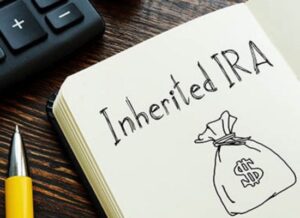
After months of negotiations in Washington, an agreement has been struck on a new aid package to address the ongoing fallout from the COVID-19 pandemic. The legislation has been passed by both the U.S. House of Representatives and the U.S. Senate, and now goes to President Trump to sign the bill into law. As of this writing on December 22, the President has expressed concerns about some aspects of the relief bill.
Included in the nearly 5,600-page Consolidated Appropriations Act of 2021, the package expands and extends several critical provisions of the CARES Act enacted in the spring of 2020 to deal with the emerging financial and health care crisis. The final bill includes neither the funding for state and local governments that Democrats sought nor the corporate liability protection from COVID-19-related lawsuits that Republicans favored.
Key Provisions for Individuals, Businesses and Employers
Here’s a broad overview of some of the provisions that may affect you:
Individuals
- Additional payments (called recovery rebates) of $600 to individuals making up to $75,000 per year and $1,200 per married couple filing jointly earning up to $150,000 per year (based on 2019 tax returns) — with payments phased out at $99,000 and $198,000 respectively — plus $600 per qualifying child;
- An additional $300 per week in unemployment benefits, including for the self-employed, gig-economy workers and others in nontraditional employment, through March 14, 2021, with the maximum period for state-paid benefits extended to 50 weeks;
- An extended eviction moratorium;
- Federal rental assistance for families affected by COVID-19, applicable to past due rent, future rent payments, and utility and energy bills;
- Clarification that money purchase pension plans are included among the retirement plans subject to temporary relief measures under the CARES Act (for example, waiver of penalties on COVID-19-related early distributions);
- Potentially larger earned income tax credits and child tax credits for some taxpayers;
- Eligible K-12 educators receive $250 above-the-line deduction for certain allowable PPE expenses paid by them
- The 7.5% of adjusted gross income (AGI) floor to deduct unreimbursed medical expenses is now permanent
- Loosened requirements for medical expense deductions beginning in 2021;
- Extended expansion of charitable contribution tax deductions for non-itemizers through 2021;
- An extended exclusion for certain employer payments of student loans; and
- New rules for disaster-related distributions from retirement plans
Businesses and other employers
- New funding for first-time and so-called “second draw” forgivable loans to eligible businesses under the Paycheck Protection Program (PPP), with dedicated set-asides for very small businesses and lending through community-based financial institutions;
- Expanded PPP-eligible expenses (for example, certain operating expenses, property damage costs, supplier costs and worker protection expenses);
- Expanded PPP eligibility for nonprofits including 501(c)(6) associations, local newspapers, and TV and radio broadcasters;
- Clarification of tax treatment for PPP loans, certain loan forgiveness and other financial assistance under COVID-19 legislation;
- New targeted Economic Injury Disaster Loan grants from the Small Business Administration (SBA) for businesses in low-income communities;
- Continued SBA debt relief payments;
- Dedicated funding for live venues, independent movie theaters and cultural institutions;
- An extended and expanded retention tax credit for eligible employers that continue to pay employee wages during COVID-19 closures or after experiencing reduced revenue;
- Extended tax credits for paid sick and family leave;
- Extended mandatory paid sick and family leave for qualifying COVID-19-related reasons;
- 100% business meals tax deduction for 2021 and 2022 for food purchased from restaurants;
- Aid to farmers and ranchers;
- Enhanced Low Income Housing Tax Credit;
- Extended repayment period for deferred payroll taxes; and
- Extended Work Opportunity Tax Credit, New Markets Tax Credit and Empowerment Zone tax incentives.
Expense Deductibility of PPP Loans Under the Consolidated Appropriations Act
The earlier CARES Act states that income would not be taxed on the forgiveness of a PPP loan recipient if the loan proceeds paid for certain expenses including payroll, healthcare benefits, mortgage interest, rent and utilities. However, existing IRS rules deny the tax deduction of reimbursed expenses, essentially creating taxable income. The Consolidated Appropriations Act removes the IRS prohibition on deducting those expenses, allowing the deductions and ensuring that qualified PPP loan remains tax-free when used for qualifying expenses.
Similar relief is also provided to the recipients of Economic Injury Disaster (EIDL) loans.
Additional details to come
This is just a quick look at the latest COVID-19 aid package. Councilor, Buchanan & Mitchell will dig more deeply into the provisions most likely to affect you or your business in the near future. In the meantime, please reach out to the firm’s tax practice director, Richard Morris, via our online contact form, with any questions or concerns about these new tax provisions affecting your individual financial or business situations. We’re here to help.
Councilor, Buchanan & Mitchell (CBM) is a professional services firm delivering tax, accounting and business advisory expertise throughout the Mid-Atlantic region from offices in Bethesda, MD and Washington, DC.



